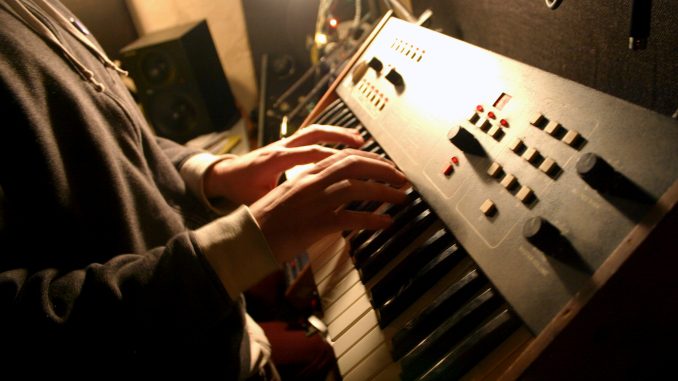
The jazz-infused hip-hop group ILL DOOTS started as a college dorm room jam session.
Today, the local band is challenging musical norms by performing with acoustic folk groups, solo DJs and the Wilma Theater. ILL DOOTS took part in the latest production at the Wilma, Branden Jacob-Jenkins’ “An Octoroon.” In the antebellum Deep South, new slave owner George takes over a late relative’s plantation and ends up falling in love with Zoe, an “octoroon,” referring to a person who is one-eighths black. When a rival neighbor attempts to win over Zoe, the two lovers fight to keep their family property.
The play is a reimagined script of Dion Boucicault’s original 1859 production. Though set in the pre-Civil War Era, director Joanna Settle’s version has a modern take with live music, courtesy of ILL DOOTS. The group’s music is inspired by producer J Dilla and The Roots.
“Hip-hop was the structure that we were working with,” said member Scott Ziegler. “But now there is no structure. They rap and sing, and we play hip-hop. We just will take it wherever it goes.”
“We started making music out of my dorm room,” Ziegler said. “By the end of the first semester of our first year of school, we were making music five days a week.”
Since graduating in 2013, ILL DOOTS has continued to play together. Last year, it got its first theater break in a University of the Arts production of “Hands Up: 6 Playwrights, 6 Testaments” at Flashpoint Theatre. Settle, currently the director of “An Octaroon,” was also the director of “Hands Up.”
Before the show had ended, she was ready to work with ILL DOOTS again.
“This collaboration with ILL DOOTS, our second project in less than a year, is one of the most meaningful creative exchanges of my career,” Settle said. “The band’s musicianship is unstoppable, but it’s their conceptual work that knocks me out. They are all the way awake and ready to fly anywhere.”
Typically, composers and musicians aren’t as involved in the show as actors, but ILL DOOTS wanted to have a hand in each step.
“It wasn’t very traditional,” Ziegler said. “We don’t have any charts for the music. In that sense I imagine it’s very different for the theater world. But that’s very much how we work regularly. It was more collaborative and alive.”
“It was draining because the material was so intense, to be working on every day,” McCree said. “In that sense it was really hard. In the sense of making the music, that was the easiest part about it.”
Performing in a theater instead of a music venue was an unusual and sometimes difficult experience for ILL DOOTS. During a scene involving a slave auction, the band members were required to shout out bids on the characters.
“It was really hard to do that,” McCree said. “It just feels really weird. Because you’re betting on people and even though we are acting, I don’t know how much it really is acting.”
“Something that Joanna [Settle] was saying was that there sort of is a part of people’s brains, a base part of yourself that would do this,” Ziegler said. “Where do you have to be coming from, yelling these numbers out, in terms of functioning in the story? And it just feels real f—-d up. Us being dressed in modern clothes in that scene was a deliberate image of the manifestations of this still today.”
“I think it makes it challenging for people to watch, and exciting for other people to watch, for those reasons,” he added.
ILL DOOTS wants to continue working in the theater scene, reaching out to new audiences and demographics. “An Octoroon” has even inspired the band to possibly develop its own work similar to Settle’s vision.
“Honestly, our next collaboration could go anywhere,” Settle said. “Maybe a new story, from the band? I don’t see any limits on what ILL DOOTS can do.”
Katelyn Evans can be reached at katelyn.evans@temple.edu.


Be the first to comment